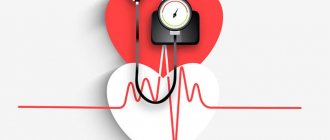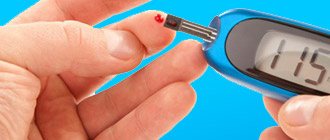Most people are sure that coffee increases blood pressure. This is not entirely true. The effect of the drink can be very different. From stimulating to soporific, from lowering blood pressure to increasing.
Let's try to understand the effect of natural coffee, and not drinks with its addition, like “coffee with chicory.” Also, we are not interested in three-in-one coffee surrogates, decaffeinated coffee and other drinks that have nothing to do with coffee.
Let's try to find out how real coffee, bean (ground) and instant, affects a person, whether it increases blood pressure or not. And if it lowers, then why are most people confident in the opposite?
How much caffeine is in a cup of coffee?
Let's start with what everyone knows. The stimulating effect of coffee is due to the caffeine it contains. But how much caffeine can be contained in one cup of the invigorating elixir?
It turns out that the matter is not only how much powder you take for preparation, but also the caffeine content in it. Moreover, if 100% of what is contained in the spoon gets into the drink from instant coffee, then when brewing ground coffee, not all of the stimulating substance will end up in the cup.
Grinding and even brewing method matter. But on average, a cup can contain from 40 to 60 mg of caffeine. Instant coffee has a slightly larger tonic component, from 60 to 100 mg.
This is explained simply. When preparing a granular extract from grains, the taste and aroma almost completely disappear. And manufacturers do not need to add expensive and aromatic, but less strong Arabica.
Preference is given to cheap Robusta, which has a much higher caffeine content. And to obtain ground coffee, they take a mixture of two varieties. One gives the drink strength, the second – aroma. In general, the strength of the drink is noticeably lower.
What does the number 60 mg mean? For comparison, a Citramon tablet for headaches contains half as much caffeine as a cup of aromatic coffee. And in soluble form – three times more than in a tablet!
How does caffeine affect blood pressure?
Some people feel great after the second cup, but after the third they begin to feel sleepy. But for most, the second cup will already be excessive.
You shouldn't drink coffee in one gulp, you need to savor it in sips. Then the enjoyment of the aroma will last longer, and you won’t be able to drink a second cup.
How does coffee affect people with different blood pressure? Doctors do not keep statistics on the effect of coffee on those who currently have high blood pressure. This is understandable; a normal doctor is unlikely to offer such a person a cup of drink with a high caffeine content.
But coffee lovers and self-experimenters, far from medicine, conducted a similar experiment. There were only 12 participants, and therefore serious conclusions cannot be drawn from the results.
So, out of 12 people, only two had increased blood pressure after drinking a GLASS of natural coffee. One is a young girl, 22 years old. Before coffee, the pressure was 90 over 60. After coffee - 102 over 70.
By the way, her example proved that even with frequent consumption of coffee, the effect may not decrease. The second was almost 60 years old. Before drinking coffee, his blood pressure was elevated. And from the numbers 132 to 78 it rose to 140 to 82. Although sometimes there are statements that supposedly with high blood pressure coffee does not increase it, but it turns out that this is not true either.
Among the remaining participants in the experiment, four blood pressure decreased from slightly elevated to normal. One remained elevated. For three it was normal and did not change. Two of them had slightly decreased normal blood pressure. Result: out of 12 participants in the experiment, it decreased in six, in two it increased, and in four it did not change.
This experience allowed us to draw the following conclusions:
Coffee can both increase and decrease blood pressure. Whether blood pressure will increase after ONE cup of coffee depends neither on what it was before coffee, nor on gender, nor on age. This is an individual reaction of each organism.
Dangers and complications
Constipation disrupts the intestinal microflora and promotes the proliferation of opportunistic microflora, which can negatively affect the health of the expectant mother and baby. The accumulation of fecal matter is dangerous due to complications such as:
- weakening of the protective functions of the mucous membrane of the digestive tract;
- reabsorption of toxins and metabolic products;
- imbalance of intestinal microflora.
With constipation, an increase in the permeability of the intestinal walls develops, and their protective function is disrupted. In late gestation, persistent constipation can cause premature rupture of amniotic fluid, as well as endometritis. In addition, problems with stool cause heaviness and pain in the abdomen, burning in the rectum, and irritation in the anus. Normalizing stool consistency will help avoid injury to the rectum during bowel movements.
Proctological diseases often accompany stool retention. The risk of developing hemorrhoids, anal fissure, and proctitis increases. And abdominal pain can result in an incorrect diagnosis - the doctor will assume a threat of miscarriage, and the woman will undergo treatment that is unnecessary in this particular case.
Intoxication associated with constipation can aggravate toxicosis. In this case, there is a decrease in appetite and sleep disturbance. All this has an adverse effect on the overall health of a woman and may cause a deficiency of vitamins and minerals.
What should you drink coffee with?
There is one secret how to drink coffee so that your blood pressure does not increase. It turns out that if you drink coffee with milk or cream, not from powdered milk, but natural, then almost no one’s blood pressure will rise!
Of course, there are those who feel dizzy after just a few sips of coffee. For the rest, with normal blood pressure, you can safely drink a cup of coffee with milk, cream or ice cream.
The fact is that the presence of animal fats in the drink does not allow caffeine to be quickly absorbed into the blood. Therefore, its level does not increase so much. In addition, there is a little less coffee - for the volume that is occupied by milk additives in the cup.
Some believe that adding a slice of lemon to your cup reduces the dangerous effects of coffee on blood pressure. Unfortunately, lemon won't help. Although this wonderful citrus by itself really lowers blood pressure, when paired with caffeine it has the opposite effect.
The belief that coffee should be brewed with cinnamon is also not confirmed in practice. That is, if you replace part of the coffee with cinnamon powder, then in fact there will be no increase in pressure. But if you put as much of the main component as always, nothing will change.
A special case is coffee with alcohol. Increases blood pressure in almost everyone. But a healthy person can afford to drink coffee with cognac or a glass of coffee liqueur.
But you won’t be able to cheer yourself up with coffee after drinking alcohol. At best, you will get a headache. A little coffee in alcohol or a little alcohol in coffee is one thing, but a cup of coffee after a glass of strong drink is already dangerous.
Recommendations for hypotensive patients
People with low blood pressure should not take tea in the “standard form”. It is recommended to prepare strong teas. The maximum daily dose can be increased to 4-5 glasses per day (200 ml each).
Sweet tea (2 teaspoons of sugar per 1 cup of drink) is often used as a first aid method for acute hypotension due to an overdose of antihypertensive drugs or severe intoxication of the body.
There are practically no restrictions on coffee intake, since it raises blood pressure the best. It is only necessary to observe the total volume of drink per day - up to 3-4 cups.
You should also not take coffee if you have pathologies such as:
- arrhythmias of any origin;
- coronary heart disease with unstable coronary hemodynamics or Prinzmetal's angina;
- operations performed on vessels supplying the myocardium (coronary artery bypass grafting, stenting, etc.);
- disorders of the central nervous system caused by organic causes that involve the brain stem.
Expert commentary
Kardash Anton Borisovich
Therapist, cardiologist. Doctor of the highest category.
In any case, in case of abnormalities in blood pressure, the question of the advisability of drinking coffee or tea drinks is decided individually in consultation with the attending physician. Only a specialist can adequately assess the clinical situation and make a verdict.
Why caffeine can lower blood pressure
Let's get back to the good stuff. What explains why coffee can lower blood pressure? It turns out there are several reasons for this. Caffeine can dilate blood vessels. They expand, blood circulates more freely, and tension subsides, and with it pressure.
In very small doses, caffeine acts as an anti-spasm agent. That is, for most people, half a glass of coffee is enough to get rid of a headache, and often reduce blood pressure. Among other things, coffee has a diuretic effect, which also lowers blood pressure.
Causes of low blood pressure
A decrease in blood pressure is observed due to simple lack of sleep, after experiencing stress, or due to poor nutrition. Women under 30 years of age are more susceptible to diseases such as hypotension.
https://www.youtube.com/watch?v=FFyfrjPhIEs
Diseases of the heart, blood vessels, thyroid and pancreas also lower blood pressure. In this case, you need to consult your doctor whether you can consume caffeine and in what doses. Sometimes people strive to artificially increase blood pressure without thinking about the consequences. You can't do that.
Is caffeine a drug? Or not
A person's addiction to coffee is sometimes compared to drug addiction. Of course, this is incorrect. A person who is accustomed to smoking tobacco feels very bad without cigarettes. Irritability and headache appear. A coffee drinker will simply be less energetic. Drowsiness and general weakness may appear in the late afternoon. And in the morning and during the day, if you got enough sleep at night, everything will be fine.
Another thing is that those who are used to drinking coffee constantly begin to increase the frequency of consumption. Sometimes during the working day - four cups, plus in the morning before work. This is already a dangerous habit.
After all, the brain of such a person works under pressure all day. And even those who have low blood pressure and really feel better after drinking coffee should not drink more than two cups a day. The fact is that coffee removes calcium from the body. Frequent consumption of coffee leads to depletion of not only the nervous system, but also the musculoskeletal system.
And in conclusion, I would like to remind you that, in addition to various drinks, the body needs ordinary clean water. And it cannot be replaced by any drinks, even very healthy ones.
Laxatives
All medications that a doctor prescribes for a pregnant woman have certain instructions in the instructions. Medicines undergo a series of tests, based on which researchers conclude whether they penetrate the fetoplacental barrier and what effect they have on fetal development and maternal health.
The FDA, or Food and Drug Administration, has several safety categories for drugs during pregnancy:
- A: long-term studies of the drug’s effect on the body of pregnant women have revealed no risk to the fetus in the 1st trimester; there is no evidence of risk in later stages.
- B: no established risk to the fetus in the 1st trimester, no evidence of risk later.
- C: The benefits of the drug may outweigh the risks/there are no clinical studies in humans.
- D: There is evidence of risk to the fetus, but the potential benefit outweighs the possible risk.
- X: studies have identified fetal abnormalities/adverse reactions that pose a risk that outweighs the potential benefit.
However, the instructions for not every laxative drug contain instructions for permission or prohibition of use in pregnant women. For example, researcher Sokolova (Sokolova M. Yu., 2013, p. 29).
It is known that the list of laxatives approved for use in pregnant women is quite small. Irritating laxatives often lead to prolonged diarrhea and electrolyte disturbances, and also have a mutagenic effect.
Increased intestinal motility from stimulant drugs also stimulates uterine contractions. Their long-term use provokes degenerative changes in the intestinal nervous system. These drugs are genotoxic and mutagenic.
Osmotic laxatives may be recommended for constipation during pregnancy. But it is important to take into account the peculiarities of using such drugs: they require drinking a large amount of liquid. This can cause a shift in water balance and the development of edema. If you do not consume more than 1.5 liters of fluid per day, there is a possibility of developing disorders.
That is why a laxative must meet three important conditions:
- safety for the fetus;
- safety for women's health;
- safety for the course of pregnancy itself.
There is a category of women who enter pregnancy with a history of constipation. Among them there are also those who already use certain medications to solve their problem. During pregnancy, it is important to adjust the approach to getting rid of defecation retention. You should tell your doctor what medications you have been taking and for how long. Self-medication in this case is unacceptable, since it is often necessary to abandon habitual laxatives in order to avoid complications.











